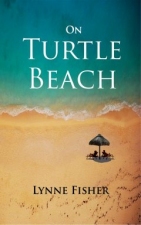
I often wonder how I would feel about reading out loud an extract or two of my writing if I was asked to attend a formal gathering. Well, it’s not likely to happen in the near future for me, but for any writer there has to be that possibility – that the day may arise when they are requested to do so. And then they’ll be confronted with whether or not they’re up for it. A case of eager embrace, or a run for the hills.

Imagine walking down an aisle between rows of empty seats, knowing they will soon be filling up with fidgeting people, and that you have to stand on a podium, pick up the microphone and address the audience, who are all looking at you expectantly for some entertainment, all of whom are presuming you will be more than ready to read from your novel or story or selection of poems. After all, you’re the writer, why wouldn’t you be eager for the opportunity?
This scenario reminds me of the time I first addressed a large audience, a secondary school assembly – so that was a biggie. All sixth formers had to do it, one day after the next, walk onto the stage behind the teachers and headmaster, sit until the time was nigh, then get up, walk to the microphone at the lectern and read the section from the bible that the religious studies teacher had selected. The only previous practice was reading to the empty hall a day or two before, with the RE teacher checking you’re projecting your voice to the rear rows of chairs. Now, I wasn’t one of the outgoing ones in my year, I was one of the quiet bodies who more popular students can’t quite figure out, who seem a bit boring, dispassionate and unforthcoming. But I’d heard a few of the more extraverted types doing their readings by this time, and I could see it was tough going for some of them. They were visibly nervous, having trouble speaking up, and making a few mistakes with a somewhat monotone delivery. And something in me said, well, it’s not going to be tough for me. So I rehearsed the reading in my bedroom at home the night before, turned up the next day and did the whole thing flawlessly. Yes, I could be heard, yes, I was clear, and joy of joys I used some expression too. Wow! I was in fact, pretty cool and I was feeling pretty good as I filed out of the hall with the teachers, until this happened a little later:
The fearsomely hawk-nosed headmaster turned around in his batwing gown and said ‘Very well done.’
I got a warm glow inside. This big man had thought I’d done a good job.
But this was tempered when I told my best friend what he’d said.
‘He said that to me,’ she said, looking rather irritated at my positive mood. ‘He says it to everyone.’
(Hmm, best friend, eh?)
Later on in class, I remember one boy telling me, ‘well done’. I smiled and said ‘thanks.’ (Isn’t it ridiculous how these moments stay with you?) But I realised I had done a good job, and I’d been a bit of a surprise to them, they didn’t quite know what to make of me…and I decided to enjoy this, a Lynne being Lynne moment, and because of that, this memory will always stay with me. I do hope some of you have a few memories like this too.
Next up was teaching art classes later in life, where I did a lot of reading out loud and some art talks to local art groups. I prepared my materials, I knew my subject, I felt enthusiastic about it, and I refused to let those few people, who just sit there staring at you with no visible engagement or encouraging body language, put me off my stroke. It’s because of people like this, who seem to be thinking, right, go on then, let’s see what you know, you’re meant to be the expert here, are you, well we’ll see about that. And I swear I think there are some people who actually relish seeing speakers struggle, so I have always found myself giving encouraging nods and smiles when I’m in ‘the audience’, to be a friendly face. When you’re a speaker, you really need this.
But where did we learn to read out loud? Well it was probably from schooldays in English Literature classes, where kids were picked on to read out a passage from a studied text to the class, a consciously deliberate request from the teacher to perhaps develop drama skills, public speaking skills, and to develop confidence. Now there’s a skill to this reading out loud, as you know. It’s not just getting the words right, it’s all about intonation, pacing and expression, about showing some emotional or intellectual response in the way you read. And I think it takes some creativity too. Some take to this, some struggle with it. It cropped up again for me in a couple of face to face group tutorials when I was with the OU – namely the English Lit tutors asking for volunteers to read out loud from the group of mature students. Here we go again, I thought, back to school. Very often there no volunteers, so after waiting a little while, I would offer to read. I love reading out loud in private, so why not in a small group? I also love trying to put expression into it. I once read a poem out beautifully, and the tutor duly complimented me, and I glowed again, but wait …and here’s the point I’m getting to – afterwards, I hadn’t a clue what I’d read! I couldn’t remember the content of the poem at all. It was a case of reading using my feelings, and responding to the words emotively, rather than hearing and following the meaning in my mind.
I came across this paradox of hearing the voice more than the meaning, when I joined a local novel writer’s group. The leader wanted it to be the kind of group where we each read out loud a section of our recent writing, off the cuff, no previous exchange of the passages by email before the meeting. The first time we did this the meeting went on for over two hours due to the length of time it took going from person to person. And the nerves built up in the waiting for each person’s turn. And after each person had done their reading, there would be some feedback. So you were meant to listen to the reading out loud, follow the story, and language, and give a critical response. My problem was that in the somewhat suspenseful atmosphere, I could only hear the reading, not the content. I was picking up how each person felt about doing it, from the way they were reading their work. One or two were reading quickly to get it done, with no expression, and for me, they were the most uncomfortable ones to listen to. My empathy was working on overtime. I was a little shaky by the time my turn came, I’d never done this before – after all, it was a case of reading and simultaneously being judged at the same time, by people I hardly knew at this stage. And I think that’s a tough situation. We were all writing different genres too and that made it tricky taking on certain kinds of feedback, because genre conventions were being dismissed or not taken into account. I did ok, but one lady thought I should get a move on with the plot in the very first chapter (the crime writer) and another felt it sounded dreamy (that was fine, as I intended).
But as I said, I couldn’t follow the readings enough to give any decent feedback, because I was too distracted from the content by the reading voice and style. One person was truly amazing. She had consummate skill at reading out loud her own work, and I think a big ego probably helps in this (but who wants one of those, I certainly don’t!) Every word was clearly placed and intoned with expression, feeling and meaning – she could have made anything, any form of literature, good or profoundly bad, sound of astonishing quality. She wasn’t going to be hurried either, she took all the time she desired, she read her prose like poetry. And that says it all. I was blown away by her at the time. But what about a writer who reads out loud poorly, their inadequate delivery so easily compromising the good quality of their content, just like a lacklustre actor can spoil a play? And that is kind of what’s going on here, isn’t it, actors delivering their lines on stage.
Well writers aren’t necessarily good actors, just as actors don’t write their own lines, but there surely must be a link between reading out loud skills and drama. The trick is, I think, to get the balance right. Practice pacing yourself so you don’t gabble, practice intonation and volume, practice expression like an actor learning their lines, but don’t take it to monumental heights befitting of Shakespeare’s day in the Globe, because these days it would come across as being all about the delivery and nothing much else. It would come across as distinctly affected and posturing. We need to feel and hear the words at the same time as we read them, and because we wrote the words, then yes, that should make it easier. We can own our words because we’ve written them, we can show what they mean to us in our expression, and if you think you can do this and most importantly enjoy this, then you can say YES to doing a writer’s reading. And I think we probably owe it to ourselves, as creative people, to have a go, don’t you?
(pics from Pixabay)
















I’m not sure I can add anything insightful, but I do enjoy speaking publicly. Sometimes in front of culinary students, other times in front of crowds at a food festival. Yes, I get nervous but once I’m on stage, all of that is forgotten. Of course, preparation is important to feel confident, so you can relax and share your passion. The cooking and discussing of food give me lots of opportunities to interact with my audience, which for me is the key.
LikeLike
Thanks for your thoughts, Kevin, much appreciated – yes sharing passion and interacting with the audience is really integral, and I tried to do my art talks on that basis, frequently suprising myself with quips too! It sounds as if you really love what you do and that can, and certainly should, make all the difference.
LikeLike
I have to present at a conference is 6 days. One of my professors mentioned that we should sign up for this chill event, so I was like, sure, I can pop up there and read a story real quick, I guess. Get out of my comfort zone. And then we were asked to provide powerpoints. And forced to go to a meeting about how to speak. And then told there are going to be a ton of donors. I am intimidated. So intimidated. If I knew it was going to be professional, I wouldn’t have applied or chosen to read a love story about cake where they die in the end… This post gives me some hope that maybe I wont destroy myself, though.
LikeLike
Oh Kailyn, I can see why you became increasingly intimidated, the organising is building it up into something you didn’t envisage, I would be feeling exactly the same! Because of this build up, everyone else will probably be feeling far more tense about it too. So, how about you showing them, be a rebel and stand out with a more relaxed style, by being yourself. All that really matters is they can hear you, that’s it. The story sounds intriguing, so don’t let the ‘dead’ ending bother you. So here’s wishing you lots of good vibes! And thanks for sharing too.
LikeLiked by 1 person
I know exactly what you mean. There’s a journal I write for regularly and they are always looking for any of writers featured to read their work out at the launches. I always think maybe someday. 🙂
LikeLike
Thanks for commenting Lisa, well maybe some day you will, and maybe some day I will too. I think it is a nice experience to listen to someone reading their work, and maybe it is okay to deliver it, as it’s probably very close to our heart. Cheers Lisa!
LikeLiked by 1 person
The idea makes me nervous too… However, I have been toying with the idea of creating a podcast or YouTube video of a reading from my books. My tentative forays into readings of my poetry on SoundCloud have been well received in a moderate sort of way.
LikeLike
Hi there, Monzilla, it’s funny I was thinking of doing something with YouTube, sorted out a channel just yesterday for putting nature videos up, but reading some of my favourite sections of my novel be an interesting possibility, where I’ve really enjoyed the language. I think your idea of doing a podcast or video is excellent. I know I enjoy hearing poets read out loud their own poetry, poetry being a case in point where you really do want to put your own expression into your own words and rhythms. Thanks so much for commenting, and I’d love to know how you get on. Will be hopping over to your site now!
LikeLiked by 1 person
Well, if you’re amenable, you may check out my tentative forays into spoken word on https://soundcloud.com/momzillanc
LikeLike
I’ve listened to one or two – I love your voice and expression, you can be quite happy with it – as a British person, I also love your accent!
LikeLiked by 1 person
Thank you.
LikeLiked by 1 person
Imagining how you felt when you successfully read that section aloud at your school assembly made me feel warm inside. Your Fe must have kicked into gear there. When I finish up my last semester at college in the spring I’m going to have to take a public speaking class. I should have taken this class when I was a freshman but I was too scared and ended up prolonging it. Reading this article gives me courage. Hopefully all goes well. Great article Lynne.
LikeLike
Hi Aphrolina, That was one thing I forgot to mention, that there are classes and courses on public speaking. I’m sure you’ll be fine though, I think practicing alone is very useful. Having said all this, I really have no idea how I would get on now, I haven’t done any for so long, but maybe I’d just think of the school assembly! Great to hear from you…
LikeLiked by 1 person